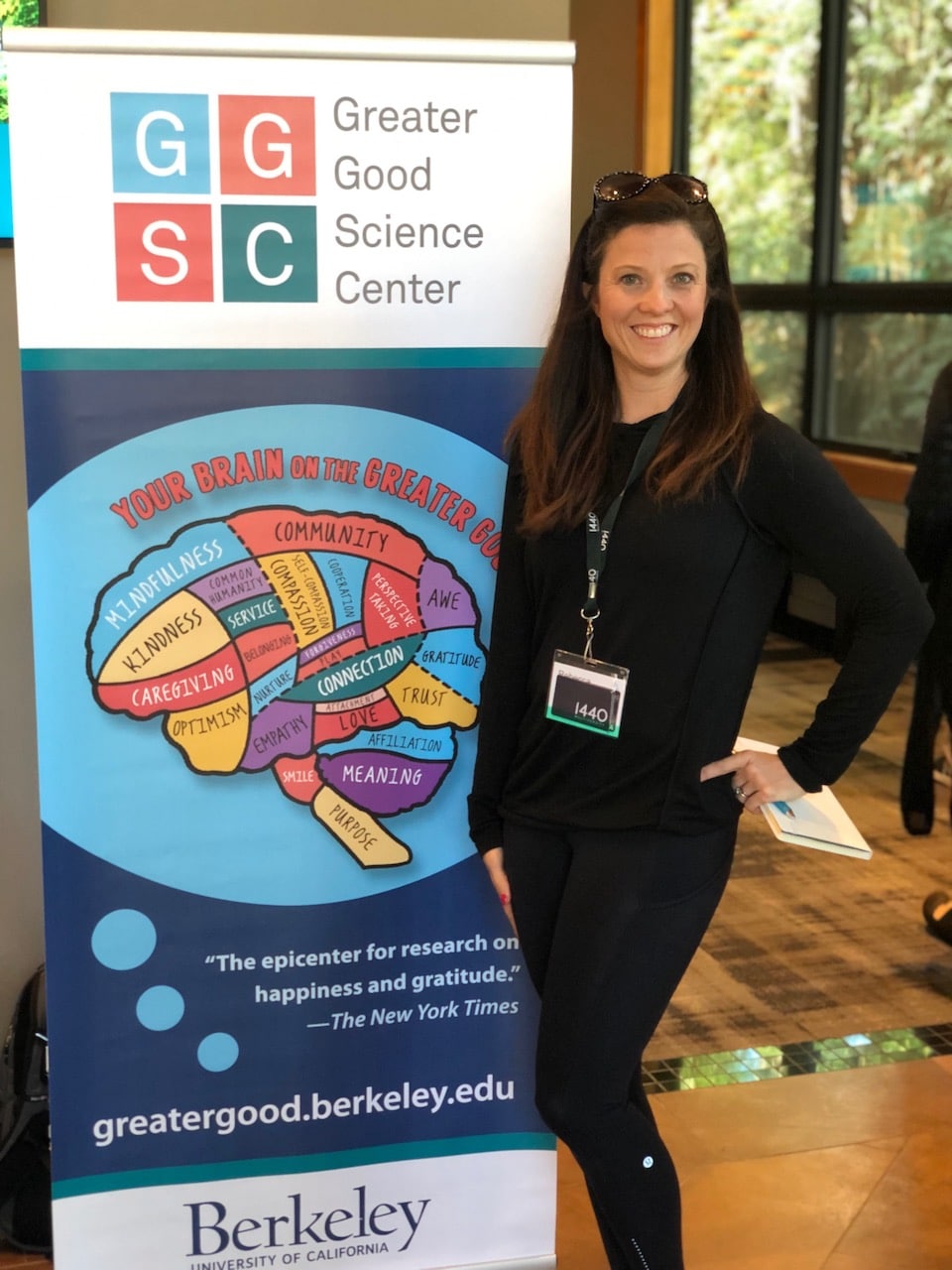
Is it possible to reduce stress and increase happiness as a school psychologist? Can I cultivate more joy in such a challenging job? Is it possible to inspire positivity under less-than-positive circumstances? Is stress and frazzle something that is baked into the culture of this job? How much control do I have over my happiness at work?
These are questions I asked myself 8 years ago, when I almost handed in my letter of resignation as a school psychologist.
For anyone who has heard me present or do online trainings, everything changed when I became pregnant with my first child and I realized my stress was no longer just mine–I needed to either quit or make a change to better manage my stress.
Research and “Me-Search” on Happiness
Instead of quitting, I dove into the research on the science of job satisfaction vs. burnout. This “ME-search happiness project” led to me writing The School Psychologist’s Survival Guide. My work/life balance crisis ultimately led to what would be nearly a decade of mining the positive psychology research and pulling out concepts to try at work. I even interviewed school psychologists who had been in the field for 30+ years and asked them for tips on sustaining and how they managed to stay engaged and thriving.
And lo and behold, it worked. Not only did I not quit (yay!), I rekindled my joy for the career again.
As I was watching my own school district burn through talented school psychologists and being left with unfilled positions, I felt compelled to share what I learned about building out career satisfaction with other school psychologists. I started blogging on the topic of educator well-being and creating free tools for other school psychologists to rekindle their joy, like my “Surviving March (School Psych) Madness” and “Mindful May” Challenges on my Facebook page. The positive feedback from school psychologists inspired me to keep researching ways to turn research into reality.
Beta Testing — Can Any School Psychologist Cultivate Happiness?
Born out of my new-found mission to support school psychologist wellbeing and career satisfaction, I started an online course and community for school psychologists to address our challenges together. In 2017, I enrolled the first cohort of over 100 school psychologists across the country in The Thriving School Psychologist Collective course.
And I didn’t know it at the time, but I accidentally created a real-time lab for trying out these scientific principles of happiness with hundreds of school psychologists across the country.
And lo and behold, it worked for other school psychologists too.
Now I had proof of concept—school psychologists can be happy and engaged at work and reduce stress. Not that every day was magically stress-free, but it was so exciting to see in my pre- and post-course data that after just 10 months of being in the course, school psychs reported greater happiness in general and happiness at work.

So now what?!?
Yoga Pants and fMRIs
I became addicted to learning more and more about the science of happiness. Like “I know the Dewey Decimal code for Happiness Nonfiction book section” addicted. I introduced new concepts on our Thriving School Psychologist (TSP) monthly Zoom calls with other school psychs and we all tried them out together. With the help of my TSP friends, I was further refining my ability to roll with stress at work, bounce back quicker after a horrible IEP meeting, and quit bringing reports home altogether on weekends. I was no longer torn between stress at work and enjoying my family and me-time after work.
And then, like a drug, I needed more and more science of happiness research to feel normal (ha!).
I signed up for The Greater Good Science Center‘s 3-day”Science of Happiness Retreat” in the beautiful Santa Cruz Mountains. My review: “Life changing. It was equal parts ‘Let’s do Quigong Yoga in the redwoods and forest bathe’ and ‘Here’s an fMRI image of your brain on mindfulness.’ Something for everyone!”
It was the epitome of putting research into action and I totally geeked out on it the whole time (in yoga pants, natch.).

A New Offering: The Science of Happiness Mini-Course!
Born of my crisis, incubated in my ME-search on Happiness, and tested in my Thriving School Psychologist course, I am beyond excited to announce the opening of my new online Mini-Course!
In this one-hour Mini-Course, you can:
- Learn 10 scientifically-backed principles of happiness to increase your overall positive wellbeing and career satisfaction.
- Learn practical strategies to build into your busy school day that are designed just for school psychologists (and tested by school psychs just like you!)
- Develop a personalized self-care action plan to implement brain-based strategies that increase happiness, decrease stress, and improve overall health.
- Earn one NASP-approved CEU!*
Are you ready to learn the 10 most powerful ways to cultivate your own joy AND inspire positivity in your schools?
Register now to get the special introductory rate of $49 for the course through School Psychologist Awareness Week (prices increase to $59 on November 16th, 2019).
I can’t wait to hear what you all think! After taking the course, I’d love to fill social media with positive messages about school psychology careers! Post and follow the hashtag #tspgoals (Thriving School Psychologist Goals!) and tag me on Facebook @schoolpsych or Instagram @thrivingschoolpsych.
Dr. Rebecca Branstetter is a school psychologist, speaker, and author on a mission to help public school psychologists manage their stress, improve their efficacy and enjoyment in their work, and prevent getting burned out so they can focus on what they love to do—being champions for helping children be the best they can be in school and in life and supporting educators and families.
*In partnership with schoolpsych.com, this mini-course is also NASP-approved for one CEU credit!
